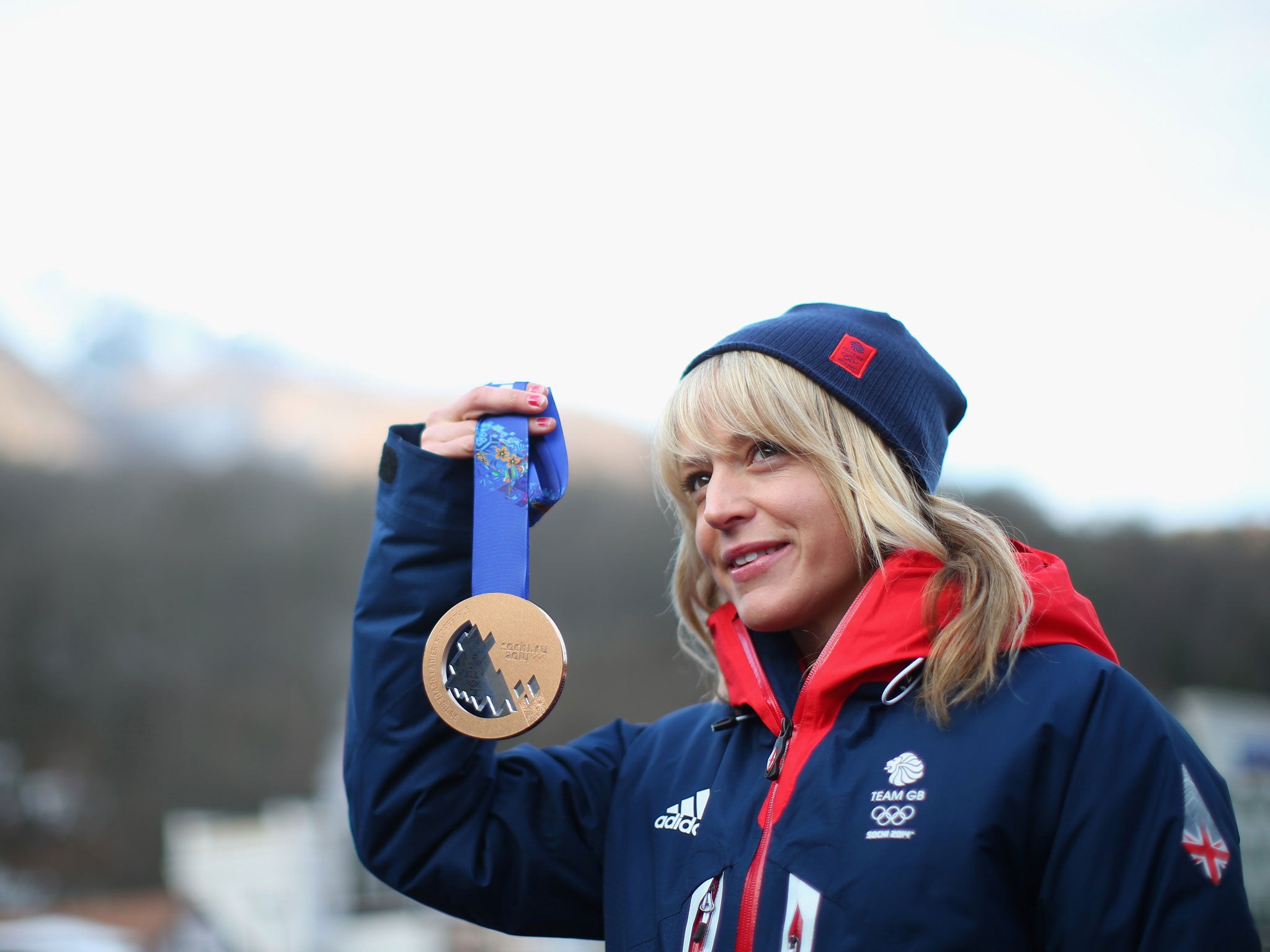Winter Olympics 2014: UK Sport vows to maintain 'no compromise' approach to funding in order for Team GB to 'continue being champions'
Skeleton, curling and freestyle skiing and snowboarding can expect a boost when the next round of funding is announced

Britain’s ‘Fridge Kids’ are set to benefit from an increase in funding after returning from the Winter Games with the country’s first medal won on snow. The skeleton and curling teams are also likely to receive more money towards the 2018 Olympics after their medal-winning successes.
Jenny Jones took bronze in slopestyle, the first of Britain’s four medals in Sochi, and when UK Sport announce in July the level of funding each winter sport will receive for Pyeongchang, freestyle skiing and snowboarding will be one of the big winners. The sport received £1.5m for Sochi.
The extra funding would allow Britain to establish a regular training base in the US to help a talented group of young athletes such as James Woods, Katie Summerhayes and Rowan Cheshire to push for medals in 2018
Lizzy Yarnold’s skeleton gold and two curling medals are also well placed for an increase. Britain’s Winter Olympians received a record £13.4m of lottery money for Sochi.
“Following so many outstanding performances in Sochi I anticipate that there will be an increase in our investment in to winter sports,” said Liz Nicholl, UK Sport’s chief executive.
UK Sport, which oversees the spending of lottery and public money for Olympic sports, has faced criticism over its decision to withdraw funding from bastketball while spending on minority sports like skeleton and curling. Nicholl defended the approach, one of “no compromise” that is strictly designed to win medals. It leaves Sport England to deal separately with funding grass-roots sport and increasing participation.
“What London did was show that investment in elite sport can have a positive impact on the British public. We’re charged by government to invest the money we’ve got to build on the success of London,” said Nicholl. “Out there, there is a misunderstanding. When we make announcements about the sports we fund or don’t fund, people are forgetting the other half of the equation, which are the home nations sports councils - in particular Sport England - who are putting large amounts of money into the same sports.
“Do we, as a nation, value the drive to deliver more medals in Rio? If we do, you have to invest what we’ve got in that. Once you start to take a broader approach and start to invest in sports that are a long way off medal potential, you reduce the amount for those that do have medal potential. That would be a compromise, and we have a no compromise approach.”
UK Sport point to the decline in Australia’s Olympic performance post-Sydney. For a home Games the hosts can enter all events and in the wake of that Australia looked to maintain funding across a wide range of sports.
“The Australians would be reflecting now that post Athens, they tried to be too broad and as a consequence stopped being champions,” said Simon Timson, UK Sport’s director of performance.
“If you want to continue being champions we have to focus our investment where it is going to have greatest impact in building champions.”
Subscribe to Independent Premium to bookmark this article
Want to bookmark your favourite articles and stories to read or reference later? Start your Independent Premium subscription today.

Join our commenting forum
Join thought-provoking conversations, follow other Independent readers and see their replies